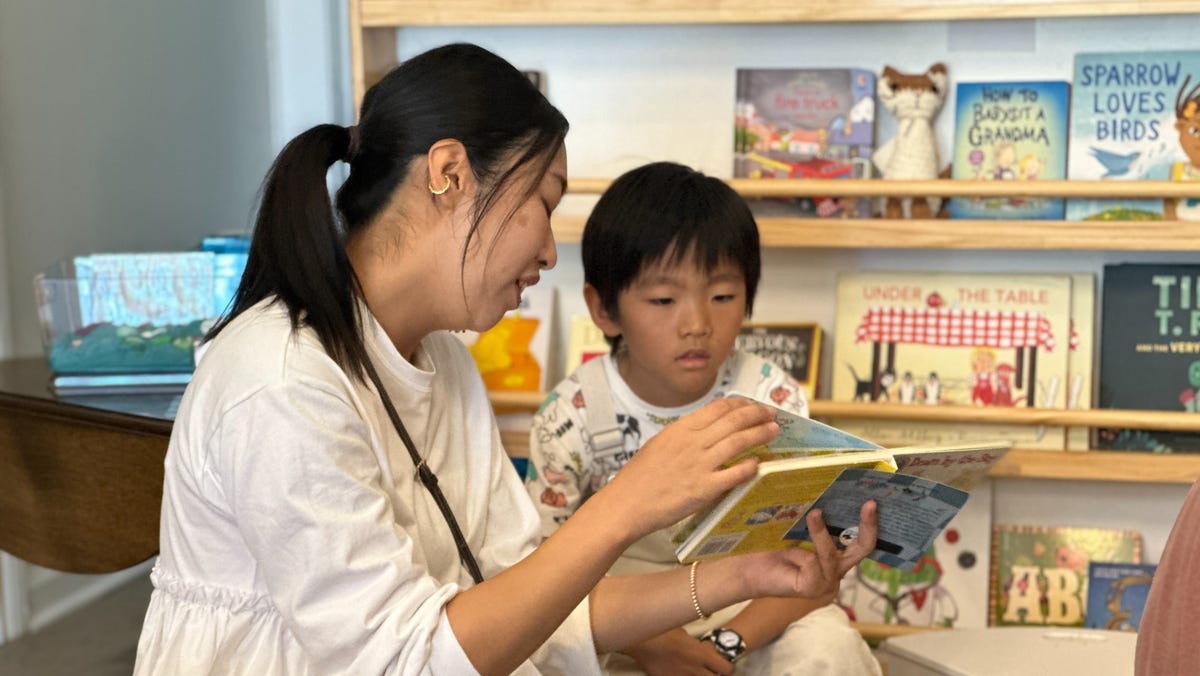When it comes to teaching early literacy skills to preschoolers, cracking open a book appears to be much more effective than powering up a digital learning game, according to a new study by a Michigan State University researchers.
The findings suggests that hands-on work like reading with an adult, practicing letter writing and spotting words in real-life settings outpaces even the highest quality games for pre-K students learning their ABCs.
“We are now in a time where almost all families are using digital media with their young children for education or entertainment,” said MSU professor Lori Skibbe, one of the researchers, in a statement. “However, in our work, using more literacy games was related to lower early literacy skills for children. Perhaps this is related to the quality of digital media used or the fact that many caregivers allow children to use it without adult supervision, which may make it less valuable for children.”
According to the study, published last month in the Journal of Research in Reading, “high-quality educational computer programmes can effectively promote children’s skills … yet some features meant to engage children’s attention, such as ‘hot spots’ in electronic storybooks and non-educational gamified elements, can detract from the instructional quality of these materials.”
The research team, including Skibbe and fellow MSU professor Ryan Bowls, along with former postdoctoral researcher Nick Waters, set out to assess literacy development in children ages 3-6 in three specific areas — letter-name knowledge (recognizing and naming letters), letter-sound knowledge (identifying the sounds letters make) and phonological awareness (understanding how words break down into sounds).
More than 1,046 children and their parents participated in the project. The study included families “from one Midwestern state” representing a spectrum of racial and socioeconomic backgrounds. Some 235 of the participating children had some type of speech and/or language impairment.
The parents were asked to log how often their children engaged in various literacy-related activities at home, including writing the letters of the alphabet, reading books and using educational games or apps. The research team grouped all activities into three categories: print-focused, shared book reading and literacy games.
The most notable finding, according to the researchers, is that print-focused activities consistently predicted stronger early spelling and reading skills in children of all backgrounds. Time spent playing games, even those recognized as being quality learning tools, was associated with lower scores.
“We were surprised that the ways in which early literacy skills were taught — either with a caregiver or via games — was as important as the content presented,” said Skibbe, who is an associate chair of MSU’s Department of Human Development and Family Studies. “This highlights the importance of caregivers when creating meaningful literacy experiences for young children.”
Skibbe said the research team’s next goal is to create a system by which parents and educators can evaluate a child’s understanding of print when they read together. She said parents shouldn’t underestimate the value of “intentional, hand-on” learning.
“These opportunities are particularly valuable for children with speech and/or language impairment, who may need more time and opportunities to learn these skills,” Skibbe said.
Funding for the study was supported by the U.S. Department of Education and the National Institutes of Health.
mreinhart@detroitnews.com
